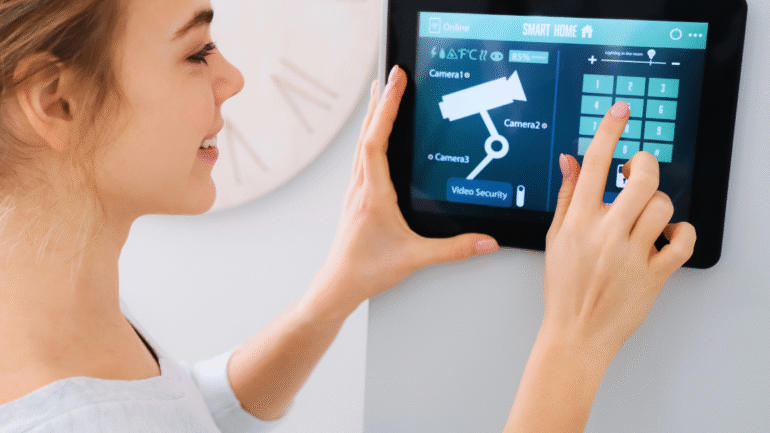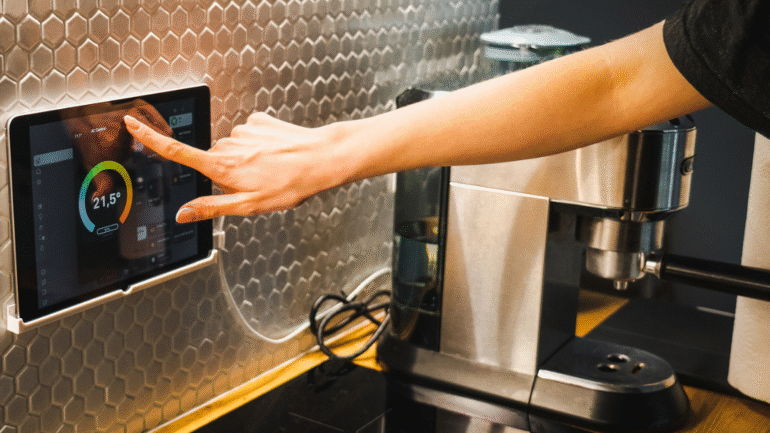Are you feeling overwhelmed by the countless options for smartphones on the market today? There are so many features, brands, and price points to choose from. So, it can be difficult to determine which smartphone is perfect for your individual needs. But fear not – in this blog post, we’ll guide you through everything you need to consider when making this important decision. From camera quality to battery life, we’ve got all the tips and tricks you need to find your dream phone.
Consider Your Budget
The cost of a smartphone can vary greatly, so it’s important to consider your budget when choosing which one to buy. There are a few things to keep in mind when considering your budget for a smartphone:
- Think about how much you’re willing to spend on a phone. If you’re looking for a top-of-the-line model with all the bells and whistles, you can expect to pay more than if you’re looking for a basic model.
- Keep in mind that you’ll need to pay for things like data plans and apps. These can add up quickly, so be sure to factor them into your budget when choosing a phone.
- Remember that cheaper phones may not always be the best deal. In some cases, it’s worth spending a bit more to get a better quality phone that will last longer and provide more features.
- You should also consider the resale value of the phone when buying. Some phones may depreciate more quickly than others, so it’s worth researching this before you buy.
- Consider how long you plan to keep the phone. If you’re only looking to use it for a year or two, then you may want to opt for a cheaper model that won’t depreciate as quickly. But, if you plan on keeping your phone for several years, then it might be worth spending a bit more upfront for something higher quality.
Decide on the Operating System: iOS vs Android
The two most popular smartphone operating systems are iOS and Android. Both have their pros and cons, so it’s important to know what you’re looking for before making a decision. iOS is the operating system for iPhone, iPod Touch, and iPad. It’s known for its user-friendly interface and sleek design. It is also generally more stable than Android and gets new features and updates first. But, it can be more expensive to buy an iPhone than an Android device, and there are fewer customization options.
Android is the operating system for a variety of devices from different manufacturers. It’s often lauded for its flexibility and openness compared to iOS. You can usually find cheaper Android phones than iPhones. Also, there are many more customization options available. But, Android can be less stable than iOS and doesn’t always get new features as quickly.
Consider the Size: Screen and Battery
When choosing a smartphone, one of the most important factors to consider is the size of the screen and battery. A larger screen will allow you to see more content at once and make better use of apps and games. A larger battery will also mean that your phone will last longer between charges. If you’re looking for a phone with a large screen, the iPhone 14 Plus or Samsung Galaxy Note are both great options. If you want a smaller phone with a long-lasting battery, the Sony Xperia Z5 Compact or Motorola Moto G4 Play are both good choices.
Ultimately, it’s up to you to decide what size screen and battery you need in a smartphone. Consider how you’ll be using your phone daily, and choose accordingly.
Consider the Build: Toughness and Sturdiness
When selecting the ideal smartphone to meet your needs, it’s essential to take the build quality into account, especially if durability is a priority. A robust and sturdy phone construction can significantly impact its longevity, especially in the face of accidental drops or bumps. Look for devices with durable materials such as Gorilla Glass for the display and a metal or reinforced plastic frame.
Additionally, consider if the phone has an IP (Ingress Protection) rating for water and dust resistance, providing an added layer of protection against the elements. To further safeguard your investment, explore the market for durable cases for phones. These accessories can provide an extra shield, minimizing the risk of damage and enhancing the overall resilience of your smartphone. By pairing a solid, well-built phone with a reliable protective case, you significantly reduce the risk of wear and tear. It’s a small step that can save you from costly repairs or replacements down the line. Whether you’re always on the go, working in unpredictable conditions, or just want extra assurance, this combination helps your smartphone last longer and better align with your lifestyle needs. Hence, by combining a well-built phone with a reliable case like these Camo Phone Cases, you can ensure that your device stands the test of time while meeting your specific usage requirements.
Assess the Performance: Processor, RAM, and Storage
When it comes to choosing a smartphone, one of the most important factors to consider is the device’s performance. This includes the processor, RAM, and storage. The processor is the heart of the smartphone and determines how fast the device is. A faster processor will be able to handle more tasks and run more demanding apps. RAM is used by the processor to store data temporarily. The more RAM a smartphone has, the more data it can store and the faster it can access that data. Storage is where all your photos, videos, apps, and other data are stored permanently. The amount of storage you need will depend on how much you use your phone and how many photos/videos you take.
Check Camera Quality
The quality of a smartphone’s camera is important for many users. A good camera can take great photos and videos and can be a fun way to capture memories. There are a few things to consider when choosing a smartphone with a good camera.
- Consider the megapixel count. This is the number of pixels in the sensor, and it affects the detail that can be captured in an image. A higher megapixel count means that more detail can be captured, and this can be useful for enlarging or cropping images.
- Look at the aperture. This is the size of the opening that gets light into the sensor, and it affects how much light can be gathered. A larger aperture means that more light can be gathered, which is helpful in low-light situations.
- Think about the shutter speed. This is how long the sensor gets exposed to light, and it affects how well-moving objects can get captured. A faster shutter speed means that less blur will be present in images of moving objects.
Consider all these factors when choosing a smartphone with a good camera. Megapixel count, aperture size, and shutter speed all affect image quality. So think about what is most important to you before buying.
Test Out the Phone Before Buying
When you’re looking for a new smartphone, it’s important to find one that fits your needs. The best way to find out is to test out the phone before buying it. Here are a few things to keep in mind when testing out a new smartphone:
- Make sure the phone is compatible with your carrier. This is one of the most important factors to consider when choosing a new smartphone. You’ll want to make sure that the phone you choose works with your carrier’s network.
- Test out the features that are important to you. Whether it’s the camera, the battery life, or something else. This way, you’ll know if the phone meets your needs.
- It’s also important to get a feel for the overall experience of using the phone. Pay attention to things like how easy it is to use, how responsive the touchscreen is, and more.
By testing out a new smartphone before buying it, you can be sure that you’re getting exactly what you need. Keep these tips in mind and find the perfect phone for your needs!
Find the Phone That Is Right for You
Choosing the perfect smartphone can be a daunting task. With so many choices and features available, it’s hard to know where to start. Thankfully, by following our tips on how to choose the perfect smartphone for your needs you will be able to narrow down your choices.
Make sure to consider all these factors before making any decisions. Do your research and find the phone that is right for you!





